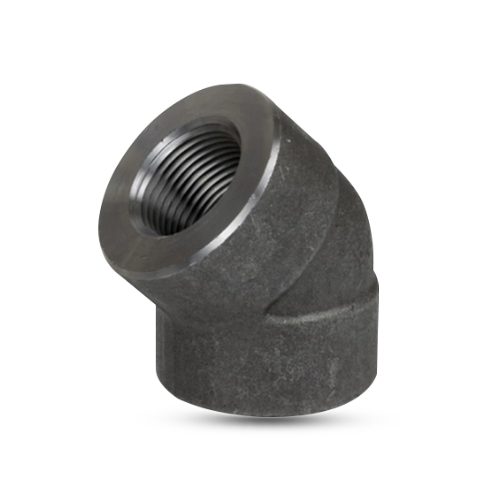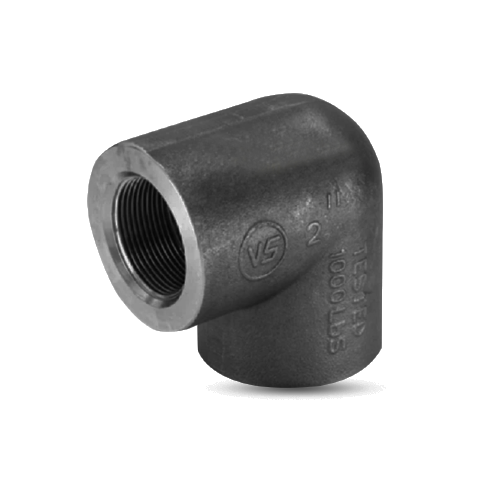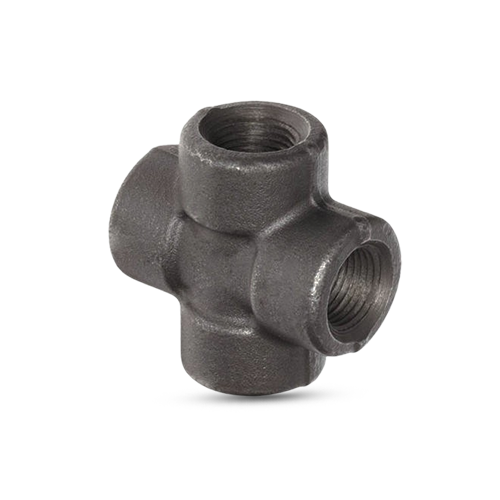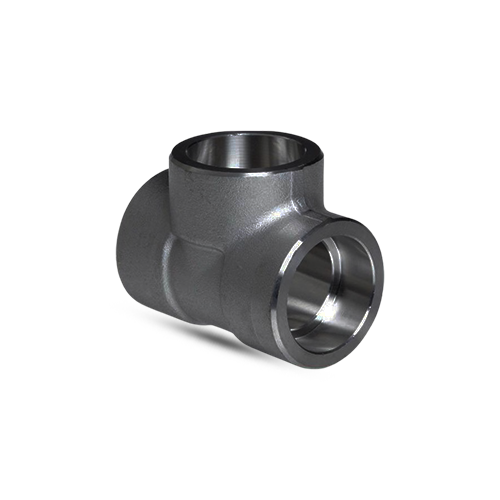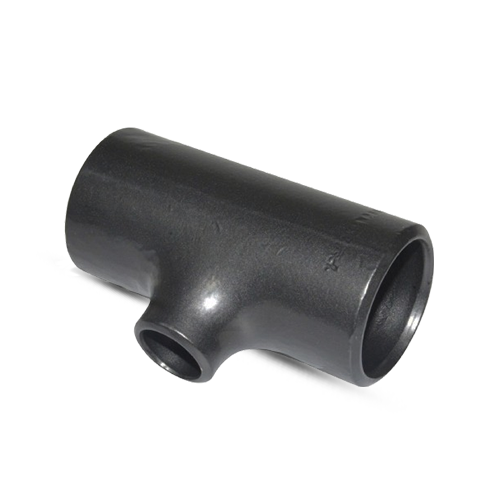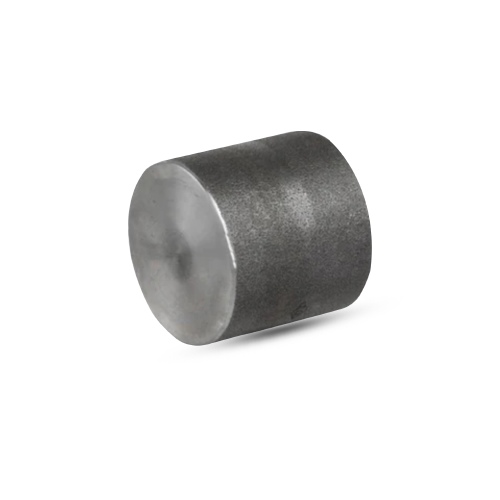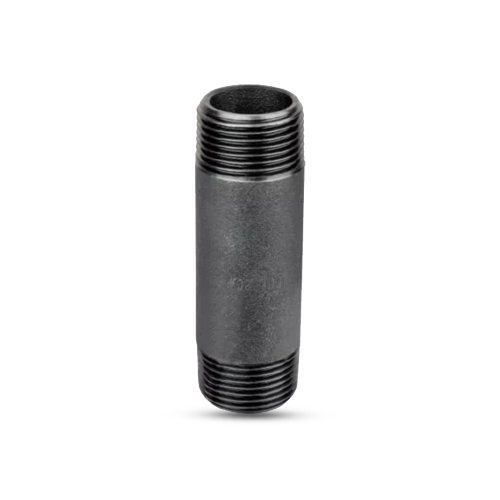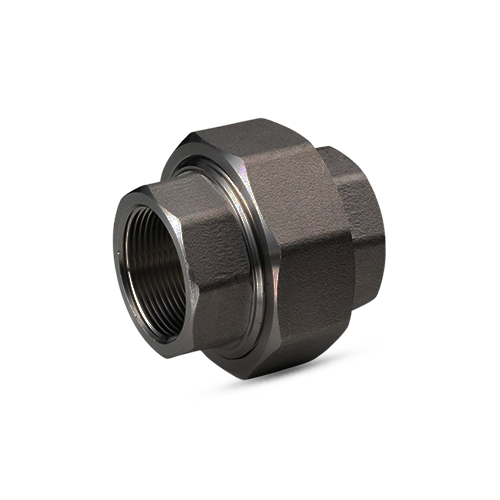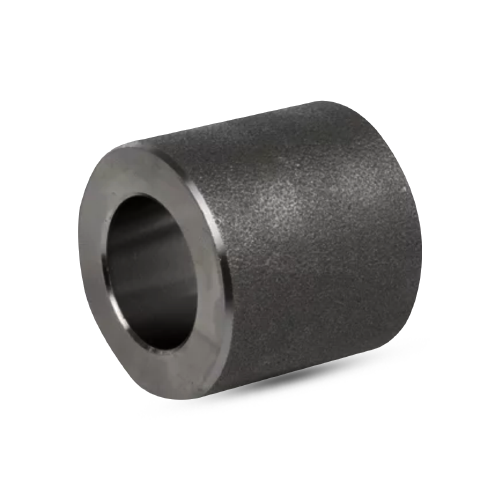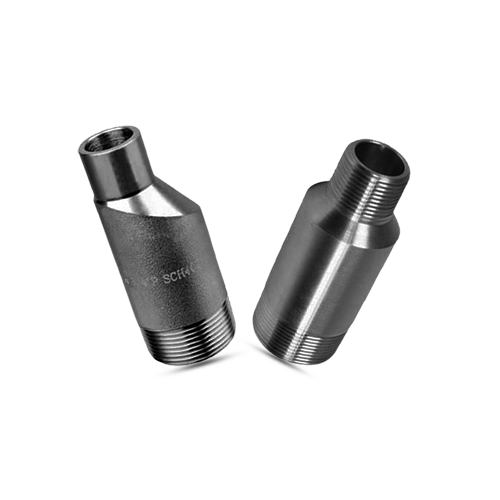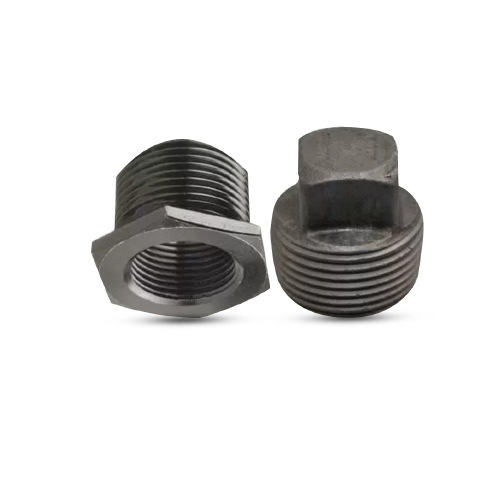Carbon Steel Forged Pipe Fittings
Home - Carbon Steel - Carbon Steel Forged Pipe Fittings
Carbon Steel Forged Pipe Fittings
EBY Fasteners' carbon steel forged pipe fittings are engineered for exceptional strength and durability in demanding piping applications. Our fittings undergo a rigorous forging process to ensure they withstand high pressures, temperature fluctuations, and harsh environments, providing long-lasting performance you can trust
The Versatility of Carbon Steel Forged Pipe Fittings
EBY Fasteners offers a wide selection of meticulously crafted carbon steel forged pipe fittings. Their strength, versatility, and affordability make them the perfect choice for safely changing flow directions, branching off pipes, and integrating equipment within your piping systems. Choose from various grades to suit your specific project requirements
- Low Carbon Steel Forged Pipe Fittings (Mild Steel) : This type of carbon steel forged pipe fittings, with a carbon content of 0.05% to 0.25% and low manganese and silicon levels, has remarkable ductility and weldability. This makes them perfect for basic shaping and manufacturing. While lower in strength than other grades, low carbon steel fittings are nevertheless a viable option for general-purpose pipelines, structural components, and systems with reduced pressure needs
- Medium Carbon Steel Forged Pipe Fittings : This grade's enhanced carbon content (0.26% to 0.60%) and greater manganese levels provide a balance of strength, hardness, and ductility. Medium carbon steel fittings are typically heat-treated to improve performance. They are adaptable and dependable options for applications requiring increased load-bearing capacity and wear resistance, such as axles, railway components, and machinery parts
- High Carbon Steel Forged Pipe Fittings : High carbon steel forged pipe fittings, with carbon content ranging from 0.61% to 1.50%, provide greater hardness, strength, and wear resistance, and are frequently supplemented with alloying elements for particular qualities. While less ductile and more difficult to weld than lower carbon grades, these incredibly robust fittings are appropriate for heavy-duty applications requiring superior wear resistance, such as cutting tools, springs, and high-pressure pipe systems
Technical Specifications
- ASTM A105/A105N : This widely used specification governs carbon steel forged fittings designed for general-purpose piping systems that operate at moderate to high temperatures. Fittings manufactured to this standard are known for their reliability across a range of industries and applications where extreme temperatures and pressures are not a primary concern
- ASTM A350 : This specification covers forged fittings made from carbon and low-alloy steels intended for piping systems operating in low-temperature environments. The various grades within this specification (e.g., LF1, LF2, LF3) offer different levels of strength and impact toughness, ensuring reliable performance in colder conditions
- ASTM A694/A694M : This standard focuses on high-strength carbon and alloy steel forged fittings designed for piping applications involving elevated temperatures and pressures. Fittings conforming to this specification are typically found in critical systems where the combination of heat and pressure requires enhanced material properties for safety and longevity
- ASTM A181 / A181M : This standard applies to forged carbon steel materials intended for general-purpose piping applications. It includes two classes - Class 60 for moderate pressures and temperatures and Class 70 for slightly higher pressure and temperature situations. These fittings offer cost-effective solutions for piping systems with less demanding requirements
- ASTM A675 / A675M : This specification focuses on hot-rolled carbon steel bars that are subsequently forged to create piping components, including fittings. It ensures the quality and consistency of the raw material used in the forging process, providing a strong foundation for the final forged product
Customized Branch Outlets as per project's specific requirements
- Low Carbon Steel (Mild Steel) Forged Pipe Fitting : This grade is characterized by low carbon content (0.05% - 0.30%) for excellent ductility and weldability. Manganese (0.25% - 0.90%) is present to boost strength moderately. Phosphorus and sulfur are limited to a maximum of 0.040% and 0.050%, respectively, to prevent material embrittlement. Silicon (0.15% - 0.40%) contributes to the steelmaking process and slightly enhances strength
- Medium Carbon Steel Forged Pipe Fitting : Increased carbon content (0.30% - 0.60%) in this grade provides a greater balance between strength, hardness, and ductility. A higher manganese level (0.60% - 1.65%) further improves strength and its response to heat treatment. Phosphorus and sulfur remain strictly controlled (maximum 0.040% and 0.050%) for material integrity. Silicon content (0.15% - 0.60%) is comparable to low carbon grades
- High Carbon Steel Forged Pipe Fitting : This grade boasts the highest carbon content (0.60% - 1.00%, potentially higher). Manganese (0.30% - 0.90%) remains important for strength enhancement. To maintain toughness, phosphorus and sulfur levels are capped at 0.040% and 0.050% respectively. Silicon content can be up to 0.60%. High carbon forged fittings may also include other alloying elements (chromium, molybdenum, nickel, etc.) to tailor properties for specific, demanding applications
- ASTM A105 and ASTM A350 (LF1, LF2, LF3) for low-temperature applications : Offers moderate tensile strength (60,000 - 75,000 psi) and yield strength (30,000 - 45,000 psi), making it suitable for less demanding applications. It possesses the highest ductility (25-35+% elongation in 2") among the three grades, allowing for easy shaping and good deformation resistance. Its hardness (120-160 Brinell) is the lowest, indicating less resistance to indentation or wear
- ASTM A105 (higher carbon end of the spec) and ASTM A694 (lower grades like F42, F52) : These grades provide a balance with increased tensile strength (75,000 - 100,000 psi) and yield strength (45,000 - 70,000 psi), making it more versatile for a wider range of piping systems. While its ductility (20-30% elongation in 2") is lower compared to low carbon steel, it remains sufficient for many applications. The hardness increases to 160-220 Brinell, providing better wear resistance
- ASTM A694 (higher grades like F60, F65) and Tool Steels (for very high hardness and wear resistance) : These grades deliver the highest tensile strength (100,000+ psi) and yield strength (70,000+ psi), making it ideal for applications requiring exceptional strength. However, its ductility (15-25% elongation in 2") is significantly lower, so extra care must be taken during shaping and installation to avoid cracking. The hardness (220+ Brinell) is the highest of the three grades, offering excellent resistance to wear and abrasion
Dimensional tolerances govern the acceptable variations in size and shape of carbon steel forged pipe fittings. These tolerances are essential for ensuring proper fit, alignment, and leak-free connections within piping systems. Standards like MSS SP-97 (for buttweld, threaded, and socket weld fittings) and ASME B16.11 (for forged fittings) set strict guidelines for dimensional tolerances
- Class 150 : This class is less common for forged fittings but is used for low-pressure applications in general-purpose systems. It indicates a lower maximum allowable pressure compared to higher classes
- Class 300 : A versatile and widely used class, suitable for moderate-pressure piping systems across numerous industries. Fittings in this class offer a good balance of cost and pressure capability
- Class 600 and 900 : Class 600 and 900 fittings are designed for applications with higher pressure requirements compared to the lower classes. Class 600 offers a significant increase in pressure handling capability over Class 300, making it suitable for more demanding systems. Class 900 represents a further step up, accommodating even greater pressures
- Class 1500 & Above (2500, 4500) : Classes 1500, 2500, and 4500 signify successively higher pressure capabilities for successively more demanding applications. Fittings in these classes are engineered for strength and are often found in extremely high-pressure systems like those in the oil & gas or chemical processing industries
Mechanical Standards
Key Standards Organizations
- ASTM International : ASTM International is in charge of developing a number of standards for mechanical testing and carbon steel product quality
- American Society of Mechanical Engineers (ASME) : The American Society of Mechanical Engineers (ASME) specializes in pressure vessel, pipe, and associated system components. Contains specs and mechanical property criteria
- International Organization for Standardization (ISO) : The International Organization for Standardization (ISO) creates international standards, such as those for mechanical testing of steel
Important ASTM Standards for Mechanical Properties
- ASTM A105/ A105M : This is a foundational standard covering a wide range of carbon steel forged components, including fittings. It sets requirements for chemical composition, tensile testing, hardness limits, and other mechanical properties
- ASTM A694/ A694M : Standard Specification for Carbon and Alloy Steel Forgings for Pipe Flanges, Fittings, Valves, and Similar Parts for High-Pressure Transmission Service
- ASTM A350/ A350M : This standard covers forgings intended for low-temperature service. It outlines impact toughness requirements (Charpy V-Notch testing) along with other mechanical property specifications
Mechanical Properties in Forged Pipe Fitting Standards
- ASTM A961/ A961M : Standard Specification for Common Requirements for Steel Flanges, Forged Fittings, Valves, and Parts for Piping Applications: This standard provides general requirements often applicable to the mechanical properties of forged fittings, even if the primary specification is something else like A105
- Specific Testing Standards ASTM A370: Standard Test Methods and Definitions for Mechanical Testing of Steel Products. This cornerstone standard outlines procedures for
Additional Relevant Standards
- ASTM E8/ E8M : Standard Test Methods for Tension Testing of Metallic Materials
- ASTM E10 : Standard Test Method for Brinell Hardness of Metallic Materials
- ASTM E18 : Standard Test Methods for Rockwell Hardness of Metallic Materials


